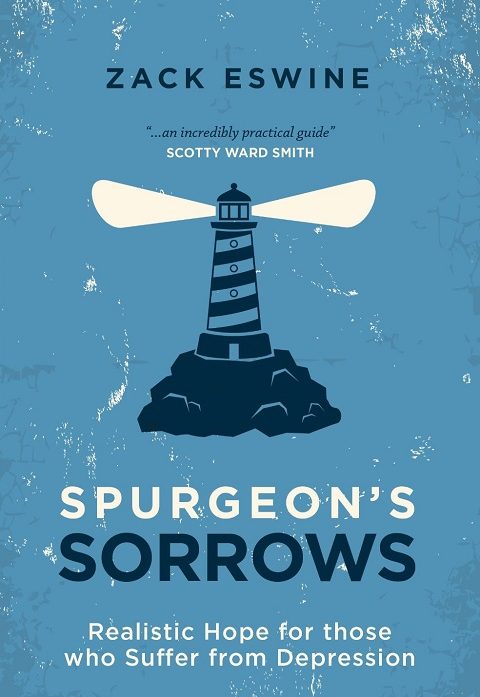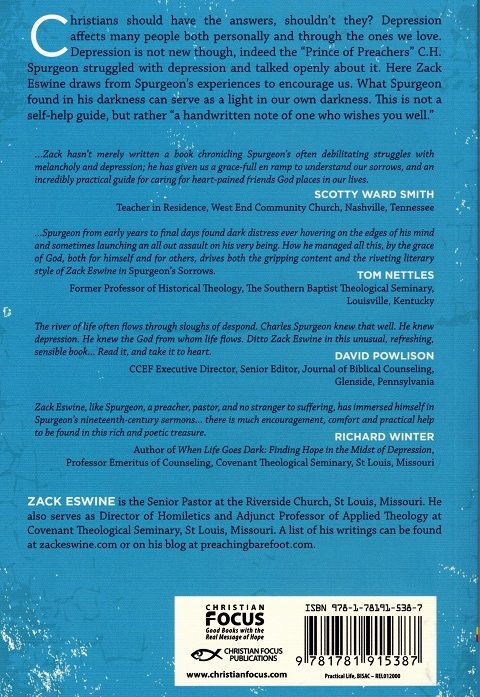Zack Eswine has done a terrific job covering the subject of Christians who live with depression. I knew that the great Charles Spurgeon (1834-1892) had struggled with depression, but not to the extent that Eswine writes about in his book, Spurgeon’s Sorrows. Also, I did not realize that the debate of depression being a “mental illness” or just “sin” went as far back as the 1800’s among Christians as it is still does today.
Christians have several opinions about depression. Some say that it is caused by mental illness, because there are no tangible facts to prove it, while others call it sin. Can both sides be right and wrong? What if depression for some is sin and for others is a mental illness? But, trying to simplify understanding depression does not help the sufferer, or those living with them.
Eswine’s book is a must-read for today’s Christian. He writes: “In our conversation together, what we’ve learned thus far is this. If ‘scientific and spiritual schools of thought’ are both tempted to address depression by holding ‘onto one explanation at the expense of the other,’ Charles has invited us to resist this temptation.”
Every Christian can get depressed from a lack of faith, self-pity, from a sin being found out, and a number of other sinful reasons. But for those suffering from mental depression it is different. Spurgeon writes: “I would not blame all those who are much given to fear, for in some it is rather their disease than their sin, and more their misfortune than their faith.”
The Prince of Preachers thought about suicide often. At least one time, Spurgeon was put on a two-week suicide watch at a hospital. He used different medications of the day to cope with his depression. Author Zack Eswine commented on living with depression this side of Heaven: “Conversion to Jesus isn’t heaven, but a foretaste. This side of heaven, grace secures us but doesn’t cure us.”
For those who have the mental illness of depression, Eswine has done them a huge favor. By writing this book about Charles Spurgeon suffering so much from depression, it gives the depressed hope. They are not alone. Depression has touched all arenas of people from the greatest to the least.
Sadly, there is a negative stigma in the Christian community if you admit that you suffer from depression. Even more so if it is known that you see a non-Christian counselor and take medication, this book won’t rid the stigma but will help you in not feeling ashamed.
I only differed with one aspect of the book. On page 37, Eswine cited some biblical characters who had depression, “Job, King David, Elijah or our Lord Jesus.” Although he was correct about the first three, I felt he was wrong in his opinion about Jesus. Jesus felt sadness to the point of tears, and experienced godly anger, joy, and many other emotions. But, depression would not have been one of those emotions. Mentally, Christ’s mind was perfect. His physical body was not marked by sin’s imperfections and weaknesses.
I thought this was a very insightful book. Thank you, Pastor Eswine!
Reviewed by Rob Robbins
Author: Zack Eswine is pastor of Riverside Church, Webster Groves, Missouri


